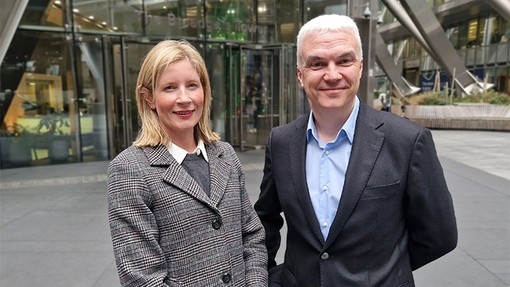Film scheme negligence claims - the Effect of McClean & Others -v- Thornhill on Establishing Duty of Care

Details
The decision in McClean & Others -v- Thornhill [2022] EWHC 457 (Ch) has provided some useful guidance on the establishing of a ‘duty of care’ in professional negligence claims, particularly against legal professionals and ‘third parties’ that were not directly instructed by the prospective claimant.
The decision also provides guidance on other areas including detailed analysis of tax-specific points insofar as they relate to a professional’s potential ‘breach of duty’, however this article will follow on the points arising from seeking to establish a professional’s ‘duty of care’ to a ‘third party’.
Recap on ‘Duty of Care’
In order to successfully bring a ‘professional negligence’ claim under the tort of negligence, a claimant must firstly establish that a ‘duty of care’ was owed by the professional to the claimant.
The general rule to establish a duty of care in professional negligence cases is set out in Hedley Byrne and Co Ltd -v- Heller and Partners Ltd [1963] UKHL 4 where it was decided that a duty of care exists on the part of a professional where there was an assumed responsibility towards the recipient of the advice and a ‘special relationship’ existed between the parties.
In practical terms, where a professional holds particular expertise, uses his or her expertise for the assistance of an individual who relies upon said expertise and where it was reasonable for the individual to rely on the judgment of the professional, then a duty of care is likely to be established.
In terms of a professional’s liability to a person to whom he had not directly provided advice, the general rule, as in Hedley Byrne and Co Ltd- v- Heller and Partners Ltd, is that if the professional consented to the advice being passed on to any third parties, and that it was reasonable for said third parties to have relied upon the advice, then a duty of care would arise between the third parties and the professional.
In essence, a professional would not be found to have a ‘responsibility’ to a third party, causing a duty of care to arise, unless it was reasonable for the third party to have relied on the advice and the professional should have reasonably foreseen that the third party would in fact rely upon the advice without qualification.
The Dispute
The claim in McClean & Others -v- Thornhill was brought by a number of investors (>100), who had invested in a series of three film distribution schemes, which had been promoted by Scotts Private Client Services Limited as providing tax benefits.
The defendant in McClean & Others- v- Thornhill was a Mr Andrew Thornhill QC, an experienced tax law Silk who had been instructed by Scotts Private Client Services Limited to provide written ‘opinions’ on the film distribution schemes which, on the request of Scotts Private Client Services Limited, would be shared with prospective investors, as a part of the promotional material contained within the schemes’ ‘Information Memorandums’.
Mr Thornhill QC’s written opinion was given and provided the conclusion that investors in the tax schemes would indeed qualify for ‘tax benefits’ through investing in said schemes. Mr Thornhill QC also provided written consent to his ‘opinions’ being included in the schemes’ Information Memorandums, as requested by Scotts Private Client Services Limited.
Her Majesty’s Revenue and Customs, following completion of the investors’ investment in the schemes, refused to agree the tax reliefs and, later, the investors accepted a settlement offer from HMRC, leading to considerable financial losses for the investors.
The Decision
In assessing the investors’ claim against Mr Thornhill QC, the judge, a Mr Justice Zacaroli, considered that there were indeed facts which, in isolation, could indicate a duty of care being owed from Mr Thornhill QC to the investors. These included Mr Thornhill QC’s specific and detailed tax law experience, the fact that he made the advice having acute awareness of the fact that the ‘opinions’ would be made available to potential investors and the fact that the ‘opinions’ went to a point of crucial importance to the potential investors – the fact that there was an opportunity for them to achieve tax benefits.
However, Mr Thornhill QC was found to owe no duty of care to the investors and, therefore, the claim against him fell at the first, crucial hurdle – establishing a duty of care.
Mr Justice Zacaroli’s decision that Mr Thornhill QC owed no duty of care to the investor claimants was based on a number of points, including, firstly, the fact that Mr Thornhill QC’s ‘opinions’ in the Information Memorandums had been provided with an express caveat: that Mr Thornhill QC recommended prospective investors take their own independent advice from their own professional tax advisor. Secondly, when signing up to the schemes, the investors were each individually required to provide a warranty that they had taken their own, independent advice in addition to Mr Thornhill QC’s ‘opinions’. Furthermore, an additional requirement of the investment schemes was that access to the schemes by the investors had to be gained thought an ‘Independent Financial Advisor’ – therefore, leading to the reasonable assumption that independent advice would have been given to the investors, aside from the ‘opinions’ given by Mr Thornhill QC in the Information Memorandums for the schemes.
Therefore, it was deemed to be entirely reasonable for Mr Thornhill QC to deduce that investors had indeed taken independent professional advice and would not have relied solely on his ‘opinions’ as provided to Scotts Private Client Services Limited.
Subsequently, the claimants have sought permission to appeal, arguing the judge was wrong to find Mr Thornhill QC did not owe a duty of care as he was ‘essential to the selling of the tax benefits’. The claimants have been refused permission on 11 May 2022 but have indicated that an application may be made direct to the Court of Appeal for permission to appeal.
Comment
For professionals, one of the key points to take from this case is the importance of caveating your advice with a requirement for independent advice to be taken, where there is potential for the advice you have provided to your client being dissipated to third parties and especially where said client would be attempting to ‘sell’ or ‘promote’ a product, service or such as in this case, a ‘tax scheme’ by using or quoting your advice.
It is also key to note that, whilst in this case, providing a requirement for a ‘warranty’ for third parties to obtain independent advice was deemed valid and reasonable, this will be dependent on the specific circumstances of each case – such as whether the third party making the warranty was knowledgeable and experienced in the relevant industry. The more experienced and knowledgeable the person, the more likely it is for such a warranty to be deemed ‘reasonable’ and, therefore, give extra protection for the professional against a duty of care arising with any such third party making such a warranty that it will or has obtained independent advice.
For those relying on ‘third party professional advice’, a key point to note is to always ensure that you obtain separate independent advice. In such an occasion, should the independent advice given to you fall below the relevant standard, a duty of care would certainly be easier to establish and affords you greater protection.
For further advice on professional negligence claims, please contact Laura Scott and Callum Powell.





